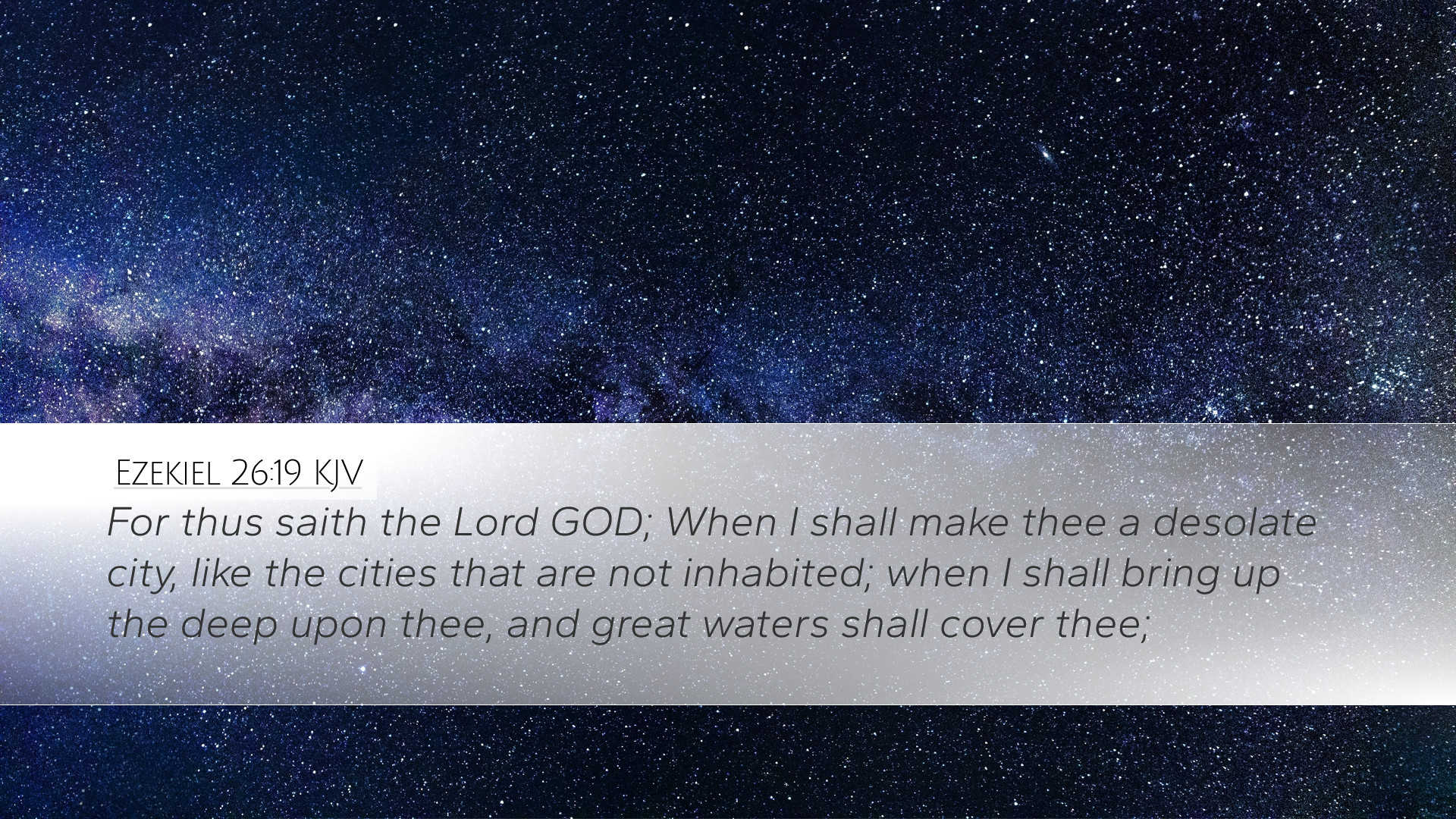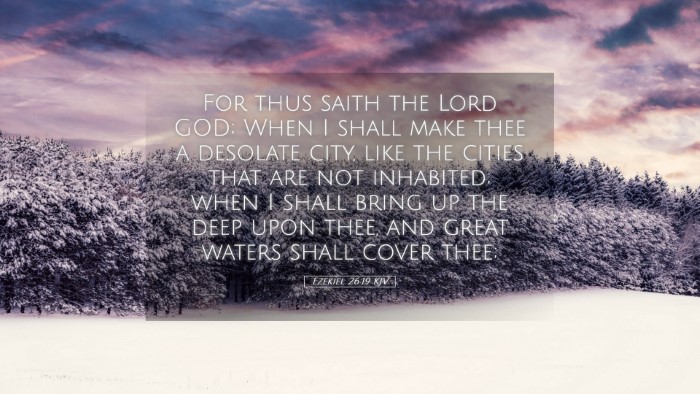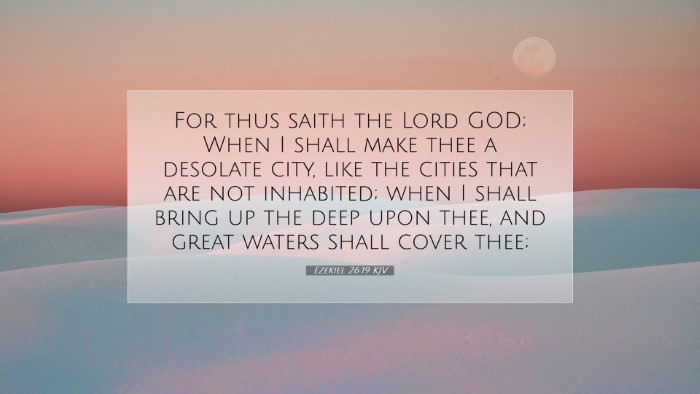Ezekiel 26:19 - Commentary Summary
The verse reads: "For thus saith the Lord God; When I shall make thee a desolate city, like the cities that are not inhabited; when I shall bring up the deep upon thee, and great waters shall cover thee." This proclamation by God through Ezekiel serves as a critical indictment against Tyre, a powerful and prosperous city that is emblematic of pride and corruption.
Contextual Background
The prophecy against Tyre occurs within the broader context of God's judgment upon nations that stand in opposition to His divine purpose. Tyre, known for its wealth, trade, and renowned purple dye, symbolized human pride and materialism. The verse serves as a forewarning of the impending destruction that would lead to its desolation.
Theological Insights
-
God's Sovereignty:
This verse underscores God's absolute sovereignty over the nations. He declares that He will transform Tyre—once a flourishing city—into a desolate area. Henry emphasizes that God's authority extends beyond Israel, affecting all nations.
-
Symbolism of Water:
Water in biblical literature often symbolizes chaos and judgment. Clarke notes that the "deep" refers to the destructive forces God can summon, suggesting that Tyre's end would be as overwhelming and powerful as raging seas.
-
Fulfillment of Prophecy:
Barnes points out that the ultimate desolation of Tyre came to pass through the conquests of Nebuchadnezzar and later, Alexander the Great, affirming the truth and reliability of prophetic declarations. The certainty of God's word is a reassurance for believers and a caution for the proud.
Historical Context
Tyre was a dominant commercial power in the ancient Near East. Its strategic location on the Mediterranean allowed it to amass wealth and influence. However, its prosperity led to arrogance, as noted by Henry, who highlights that Tyre’s fall was a consequence of its self-reliance and neglect of God.
Practical Applications
-
Warning Against Pride:
Just as Tyre became a symbol of pride, this passage serves as a poignant warning to modern believers against the arrogance that can arise from success and material gain.
-
Hope in Judgment:
While the message of destruction is somber, it should instill hope in the hearts of the faithful. God judges not just to punish but to restore. His desire is for nations to turn back to Him.
-
Understanding God’s Justice:
The relentless nature of God’s justice calls for introspection among congregations and leaders alike. Students and pastors are encouraged to process the implications of God's judgments as a reflection of His holiness and righteousness.
Conclusion
Ezekiel 26:19 is a powerful reminder of God's ultimate authority and His ability to bring low those who pride themselves on their might and wealth. It challenges believers to reflect on the importance of humility and dependence on God rather than on earthly achievements. As they study this scripture, both theologians and clergy should focus on God's character as both just and merciful, holding a balance of fear and reverence for His mighty power.


